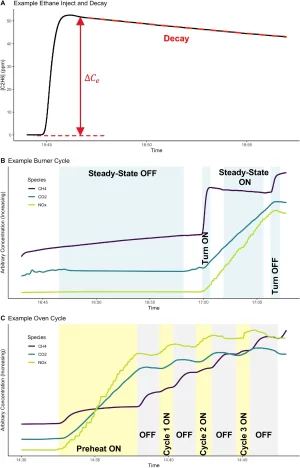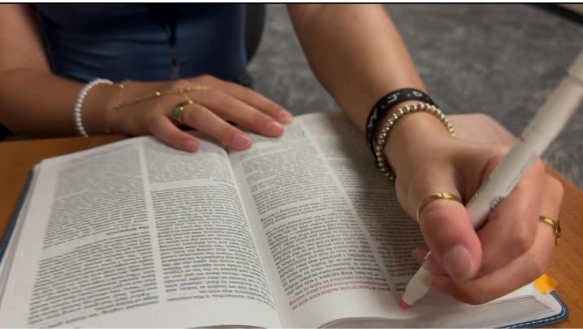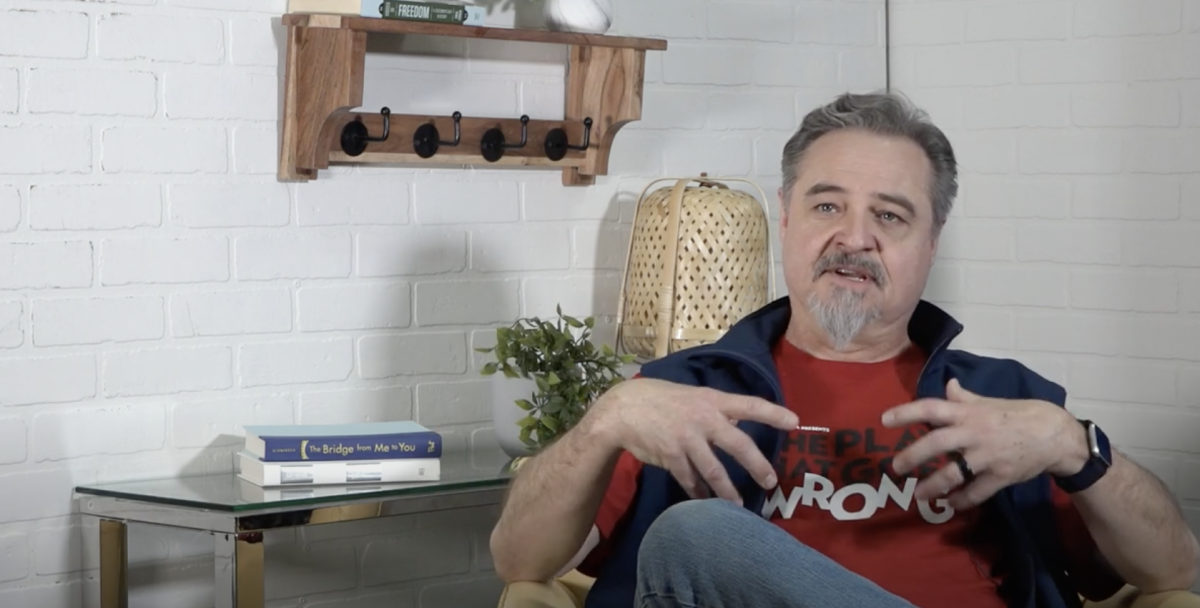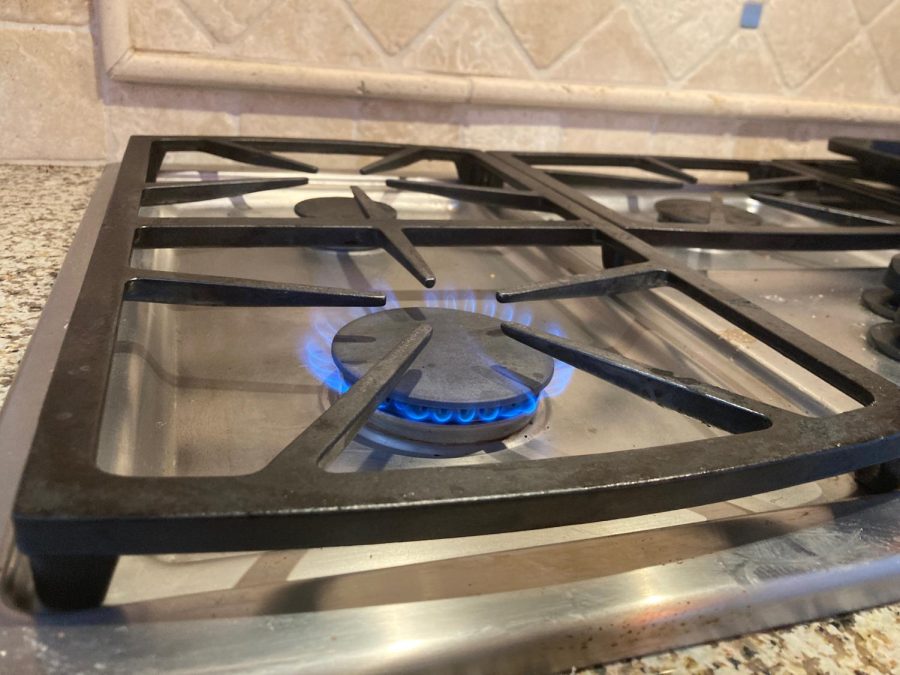The Attack of Gas Stoves
Is there a killer in your kitchen?
In a study published in December, it is estimated that 12.7%, or one in eight childhood asthma cases are caused by gas stoves.
Researcher Brady Seals manages the carbon-free buildings program at RMI (headquartered in Colorado). Alongside epidemiologists, Seals and her team found the use of gas indoors results in the increase in asthma cases within kids.
The recent study showed that nitrogen dioxide levels in homes with gas stoves rise above regulated levels for outdoor use, but there are no indoor pollution regulations, causing concern for scientists and politicians alike.
Seals and her team found gas stoves leak toxic chemicals like nitrogen dioxide and carbon monoxide among other gasses into the air. Some of these chemicals are proven to be carcinogens. Carcinogens, like cigarettes and UV radiation, are anything that can cause cancer.
“A lot of gas that comes out of gas stoves is nitrogen gas, which is a known irritant to lungs,” said Gabriela Casey, Valor Christian High School biology teacher. “So that is where the asthma could be coming from.”
A Valor Christian High School student who suffers from asthma commented on her experience with gas, “I had to lay down because my asthma was acting up.” She began to notice the effects down in the studies.
“I don’t have gas at home,” she said. Ruling out the possible gas stove caused asthma. “But when I was at a cabin, I turned on a gas stove and accidentally left the gas on, I noticed that I couldn’t breathe as well and I had a substantial headache.”
Not only are scientists concerned about health impacts, but also the environmental impact. Gas stoves leak not only nitrogen dioxide, but also methane. Gasses can leak when cooking but also when stoves are off, adding to researchers’ concerns. A Stanford study shows, “inside U.S. homes has the same climate impact as about 500,000 gasoline-powered cars” and “[gas stoves] leaked 76% of their total methane gas emissions”. Methane together with the other gasses leaked from gas stoves contribute to the house’s indoor air pollution.

“They should put some standards [on gas stoves]. Right now I don’t think there are any standards on gas stoves, because right now they can do whatever they want,” said Casey. She elaborated by saying, “the regulation could be a warning label, ‘when you use this, you should open up a window’ or ‘it’s possible you could have a higher exposure to ‘xyz’’.”
Soon after the release of these new studies, the topic of gas stoves quickly became a hot political topic, with strong opinions about possible regulation and mandates.
Discussions of a possible ban on gas stoves have already begun. Earlier this year, in an interview with Bloomberg, Consumer Product Safety Commissioner Richard Trumka, Jr, said that a ban on gas stoves could be “on the table”.
“It should not be a political topic, but it is,” Abbi Hendershot, government and history teacher at Valor Christian High School said.
Hendershot believes a nationwide ban is improbable. “I would be really surprised if we saw a national ban on gas. I think it would have to be county to county level,”
Although a total ban is not likely, the news of possible restrictions on gas angered many gas-owning Americans. Some people think taking gas away is the government overstepping. Governor of Florida, Ron DeSantis, in a speech responded to possible gas restrictions saying, “you’re not taking our gas stoves away from us.”
Hendershot noted the outrage and commented,“the American public can be very short sighted a lot of the time, like it’s not going to affect us or even the next generation. Following up she said,”in the long term we can’t have 100% of people use natural gas. We have to have a balance between the two.”
However, now a national ban seems to be off the table all together. President Biden’s administration rejected the claim that the President would ban gas. “The President does not support banning gas stoves.” And clarified that the Consumer Product Safety Commission was working independently.
“If this administration was to say, we are going to ban all gas in all new developments. They want to get reelected in 2024. You are alienating an entire group of people who are a part of a blue collar worker that may have voted for you previously but if you do something that will cause a closure of an entire industry, you are going to lose voters,” Hendershot said.
Additionally with the meeting of a more conservative congress, changes on gas stove regulations will be harder to pass. Hendershot commented, “most bills start in the house, and if it can’t get to the senate. It’s not going to go anywhere.”
Although a full ban may be off the table, legislators are beginning to challenge gas stoves. In Biden’s Inflation Reduction Act, a rebate on gas stoves was introduced, which incentivises switching to electric. Cities like New York and Berkeley have introduced bans of new fossil fuel hook-ups within new developments, this way combating the gas industry.
“We overcorrected, we are jumping really far. Some people are saying we need to get rid of all gas stoves, and then some people are saying let’s step back and see if we can repair these things,” said Hendershot. “So you have to find a middle ground.”
Although the future of gas stoves is still unclear. Many politicians and scientists are looking to educate the public about the possible concerns of gas stoves.
“I think we need to get the word out there,” said Casey. “Like this is up to you [if you have a gas stove] or if you want to buy a home with one, but here’s what you should know.”
Although it might not be a killer in your kitchen, gas stoves could still be cause for concern.
Your donation will support the student journalists of Valor Christian High School. Your contribution will allow us to purchase equipment and cover our annual website hosting costs.

Kenna is a junior at Valor and moved from Minneapolis this summer. She is interested in art, culture and Chinese, and hopes to continue learning about...
























